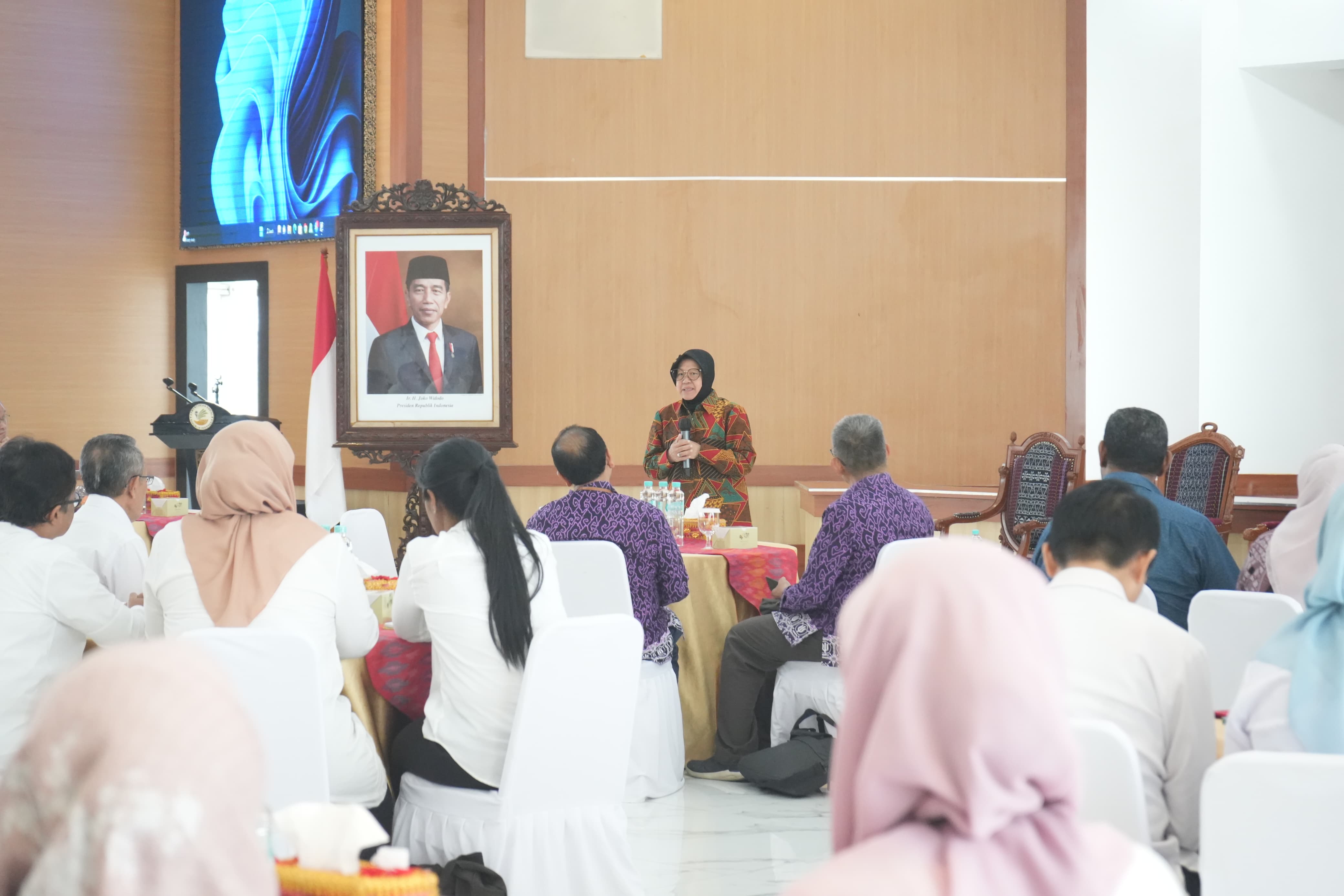EAST JAKARTA (5 July 2024) – Social Affairs Minister Tri Rismaharini discussed efforts to address social welfare and social conflicts during a discussion with staff members from anthropology and psychology backgrounds, held at the Aneka Bhakti Cawang Kencana Building on Thursday (4/7). During the conversation, the Minister emphasized the importance of developing human resources as one of the efforts to address social conflicts.
"If we want to build (nation), we must build the people," said Minister Risma on Thursday (4/7). In addition to human resource development (HRD), Minister Risma also believes that assessments are necessary for successful conflict resolution, which leads to better outcomes.
Minister Risma's view was supported by Andik Matulessy, Chairman of the Indonesian Psychological Association. Andik defines HRD through empowerment as a community-based approach in solving social problems. "I agree with the Minister that if we intervene in a place, people should not become dependent on us. We act as facilitators so that they can solve their problems independently," Andik said.
When dealing with social conflicts, numerous procedures are required, including assessments and interventions. Understanding the underlying causes of conflict is critical, and it can be accomplished in various ways, including surveys, Focus Group Discussions (FGD), and others. A proper assessment will decide the correctness of the intervention to be implemented. Dady Maiuruhu, Director of the Ambon State Polytechnic, stated, "If the assessment is correct, the intervention will also be correct."
However, resolving conflicts is not always as straightforward as identifying problems and offering solutions. There are numerous elements to consider during the assessment process.
Furthermore, Andik Matulessy emphasized that when performing assessments, the strengths and benefits of the intervening party should be addressed. The intervention should result in change, no matter how minor, for the individuals or communities involved. Furthermore, both assessment and action help to prevent similar conflicts from occurring again. "Prevention is also vital because all conflicts result in long-term animosity. As a result, the resolution must also seek to avoid future conflicts," Andik concluded.
 Bahasa
Bahasa
 English
English


